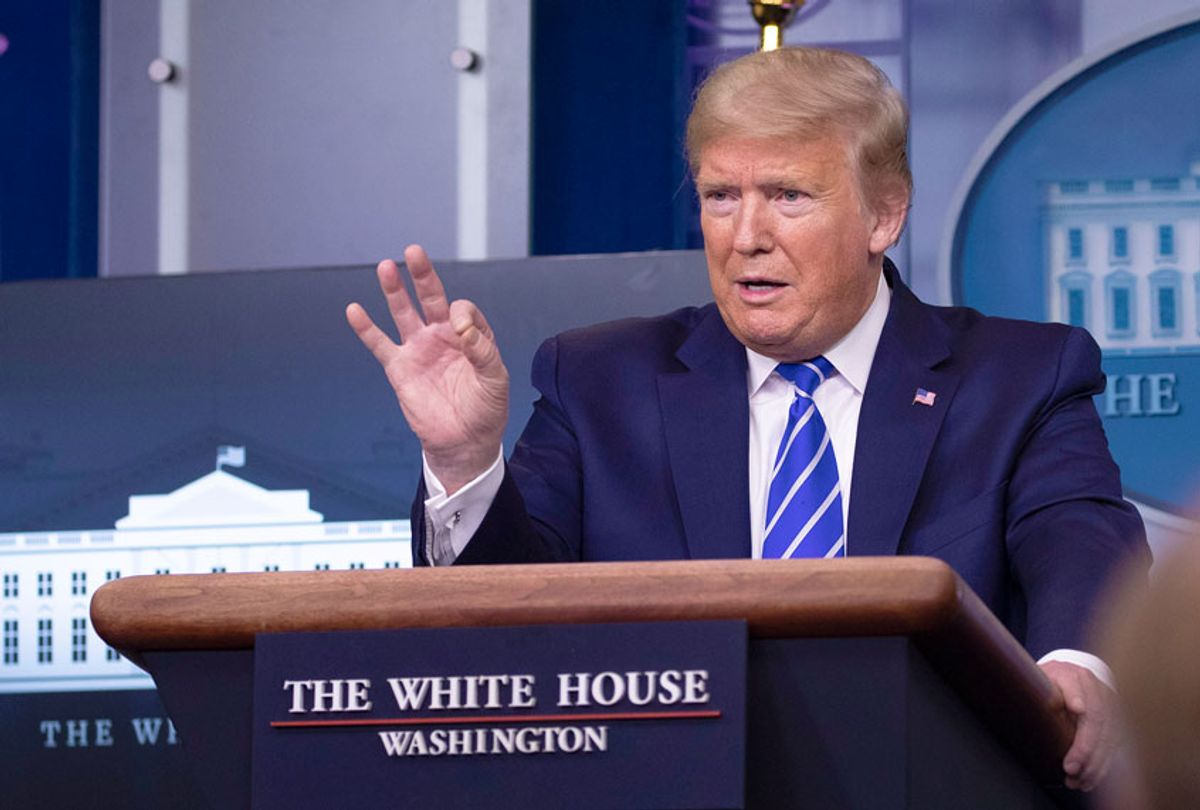President Donald Trump admitted that he was briefed about the new coronavirus in January before calling decrying the Democrats' "hoax" and jetting off to golf trips the following weeks.
Trump made the comment ahead of a Bloomberg News report that the intelligence community briefed the president about the virus twice in January. The Washington Post previously reported that intelligence agencies issued warnings in more than a dozen classified briefings to Trump in January and February.
Despite receiving the briefings, Trump decried media coverage sounding the alarm about the virus to be the Democrats' "new hoax" in February and continued to travel to golf outings and rallies well into March.
Trump admitted ahead of the report that he was briefed in January, though he claimed that the briefing was not alarming. The president tweeted that he was not briefed until "late into January," and "they only spoke of the Virus in a very non-threatening, or matter of fact, manner." He reiterated the claim Sunday in a town hall hosted by Fox News.
"On Jan. 23, I was told that there could be a virus coming in, but it was of no real import," Trump said. "In other words, it wasn't: 'Oh we gotta do something, we gotta do something.' It was a brief conversation and it was only on Jan. 23."
Though Trump claimed that he was told "there could be a virus coming in," the briefing came three days after the U.S. had confirmed its first coronavirus case.
Trump also did not address why, after receiving multiple briefings, he continued to play golf at his resorts until March 8. Trump changed his tune by March 17, claiming that he "felt it was a pandemic long before it was called a pandemic."
Trump's attempt to downplay the intelligence is also contradicted by report in The Post, which revealed that agencies repeatedly highlighted the threat in more than a dozen briefings for the president because of alarm. Officials told The Post that the warnings "reflected a level of attention comparable to periods when analysts have been tracking active terrorism threats, overseas conflicts or other rapidly developing security issues."
Despite the ongoing warnings, Trump insisted on Feb. 26 that the number of coronavirus cases "within a couple of days is going to be down to close to zero."
"It's like a miracle," Trump insisted that month. "It will disappear."
A day before the World Health Organization declared the virus a global pandemic on March 11, Trump said: "Just stay calm, it will go away."
Trump told Fox News on Sunday that as many as 100,000 Americans could die from the virus, which has already killed more than 68,000 people.
"We're going to lose anywhere from 75, 80 to 100,000 people," Trump, who last month predicted the death toll would be "substantially below the 100,000" mark, said.
But Trump credited himself with saving millions of lives after the country imposed lockdowns, though he refused to issue any nationwide restrictions.
"If we didn't do it, the minimum we would have lost was a million two, a million four, a million five — that's the minimum," he claimed. "We would have lost probably higher. It's possible higher than 2.2."
Even as he praised himself for the lockdowns, Trump insisted that people would be safe without them.
"People are going to be safe. We've learned a lot. We've learned about the tremendous contagion. But we have no choice: We can't stay closed as a country. We're not going to have a country left," he said. "This virus will pass. It will go. Will it come back? It might. It could. Some people say, 'Yes.' But it will pass."



Shares